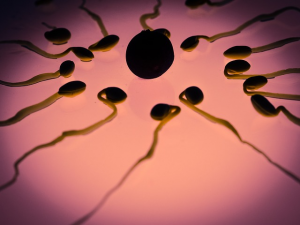
Data from two randomized controlled trials have shown that selenium supplementation has the following significant beneficial effects [Salas-Huertos]:
- improved sperm volume and concentration
- improved sperm motility
- improved sperm morphology
Selenium supplementation at 100 micrograms per day for 3 months improved sperm motility and increased the chance of conception. Selenium supplementation at 200 micrograms per day for 6 months improved semen volume, total sperm count and concentration, and sperm morphology [Salas-Huertos].
Data from five other randomized controlled trials have shown that Coenzyme Q10 supplementation is significantly associated with the following beneficial effects:
- improved sperm count
- improved sperm concentration
- improved sperm motility
- improved sperm morphology
The Coenzyme Q10 supplementation was most effective when the supplementation was in the range of 200 – 300 milligrams per day (in divided doses) for at least 3 months and especially after 6 months [Salas-Huertos].

